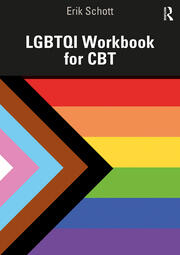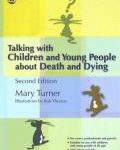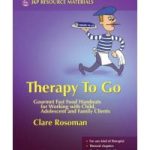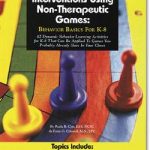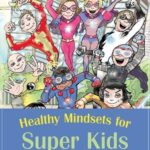Cognitive-Behavioral Therapy (CBT) is one of the most popular evidence-based interventions in the world, but little has been done to explore how it affects different groups of people, such as the lesbian, gay, bisexual, transgender, queer, and intersex (LGBTQI) community. The LGBTQI Workbook for CBT is filled with hands-on, practical perspectives for readers who are seeking a new point-of-view or for clinicians and students seeking additional tools, competence, and humility when working with sexual and gender minorities.
The workbook focuses on skill building and addresses techniques for personal self-assessment, cognitive and behavioural activation, psychoeducation, and therapist resources. Incorporating structured learning tools to promote professional responsibility as well as ethically driven and evidence-based practices, this text aims to promote empowerment. Applied activities are available in multiple reproducible worksheets and handouts to utilize in session, in the classroom, in the field, and in life.
The LGBTQI Workbook for CBT is an invaluable resource for interested members of the LGBTQI community, beginner or experienced clinicians, and students working with sexual and gender minority clients. It is an excellent supplementary text for graduate students in social work, psychology, nursing, psychiatry, professional counselling, marriage and family therapy, and other healing professions such as medicine, acupuncture, or physical therapy.
Contents:
- Dedication
- Introduction
- How to Use This Book
- Terming CBT
- Terming LGBTQI
- Part 1: Self-Assessment Handouts and Worksheets
- Part 2: Cognitive Handouts and Worksheet
- Part 3: Behavioural Handouts and Worksheets
- Part 4: Psychoeducational Handouts and Worksheets
- Part 5: Therapist Handouts and Worksheets
- Appendix A AT Progress Note
- Appendix B Biological-Psychological-Social AT Assessment
- Appendix C Resources
Author Bio:
Dr. Erik Schott is a clinical associate professor at the University of Southern California (USC) and a licensed clinical social worker in Los Angeles. He is a certified Eye Movement Desensitization and Reprocessing (EMDR) psychotherapist; holds specialized training in Emotionally Focused Couples Therapy (EFT) and CBT; and has expertise in LGBTQI social work, childhood neurodevelopmental life issues, HIV/AIDS, diversity, equity, and inclusion (DEI) pedagogy, and instructional design.
Review:
“Dr. Schott’s LGBTQI Workbook for CBT is a practical and most useful resource for social work students and mental health practitioners in the field. The workbook provides a panoply of exercises, resources, and tools for self-reflection, action planning, and strengthening of the therapeutic alliance via the lens of affirming practice and principles of CBT.” – Michael P. Dentato, PhD, MSW, Associate Professor of Social Work, Loyola University Chicago, author of Social Work Practice with the LGBTQ Community.
“LGBTQI Workbook for CBT is a very welcomed answer to the perennial question about affirmative practice with queer people: But, how do you do that? This text is imminently readable, extremely pragmatic, and perfectly economical in breadth and depth — for both the client system and clinicians alike. Dr. Schott has distilled CBT in an effective way for all users, while simultaneously infusing CBT with the core ethos and practical strategies that promote queer validation and that help users along a path of healing from minority stress and anti-LGBTQ+ oppression. This should not only be part of the intervention toolbox when working with LGBTQ+ people — but it should be part of the educational archive for training practitioners.” – Tyler M. Argüello, PhD, DCSW, LCSW, Associate Professor of Social Work, California State University, Sacramento, author of Queer Social Work: Cases for LGBTQ+ Affirmative Practice.


